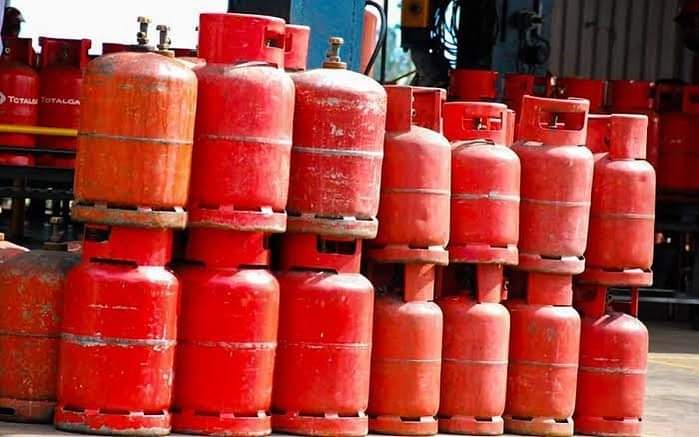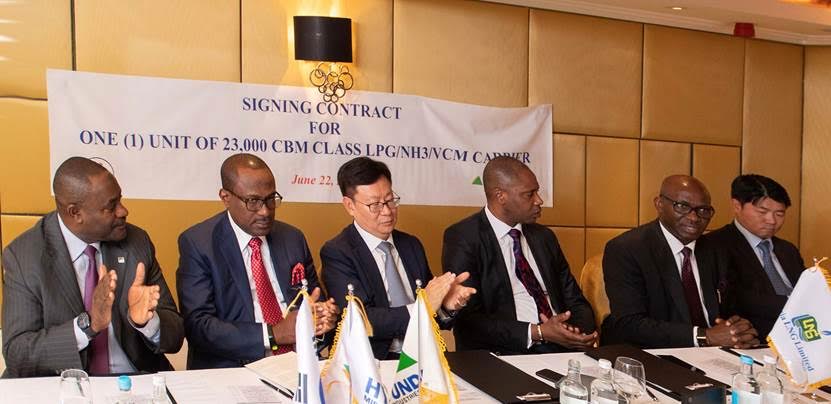The price of Liquefied Petroleum Gas (LPG) popularly known as cooking gas has started dropping, marketers have confirmed.
TheNewsGuru.com (TNG) reports Mr Bassey Essien, the Executive Secretary, Nigerian Association of Liquefied Petroleum Gas Marketers (NALPGAM) and Mr Michael Umudu, National Chairman, Liquefied Petroleum Gas Retailers (LPGAR) confirmed this on Monday.
According to Essien, the announcement that the government was reintroducing value added tax (VAT) on imported LPG created panic in the market which led to the hike experienced in the price of cooking gas in 2021.
He said the federal government was yet to implement the payment of VAT on imported LPG, and as a result the price of the product across the country has started dropping.
Recall that the government had in 2019 gazetted the removal of VAT on LPG to increase its domestic utilisation. However, in July 2021, the marketers were notified about the reintroduction of VAT on the product as the government moved to shore up its revenue sources.
Essien urged the government to urgently clarify its position on the issue, saying: “The announcement that the government was reintroducing VAT on imported LPG created panic in the market which led to the hike we experienced in the prices of cooking gas in 2021.
“Some marketers stopped importation, and don’t forget that about 60 per cent of LPG consumed in Nigeria is imported. The NLNG only supplies about 450,000MT and our LPG consumption is over one million metric tonne, so imposing VAT on imported LPG affected the market.
“However, government is yet to begin collection of VAT payment in spite the announcement which has encouraged more marketers to restart importation.’’
He said the impact was currently being felt as the prices of cooking gas had reduced from about N10,000 and N10,500 for a 12.5kg gas cylinder to about N7,400 and N9000, across the country.
According to Essien, supply has increased and as it continues, the prices will continue to decline but it is still a far cry from where we are coming from.
“In January 2021, a 20 metric tonne truck was about N4 million but it is currently about N9.7 million.
“We have to look at all the factors that drove the prices up including LPG demand in the international market and find a way to domesticate LPG supply to ensure price stability.’’
Meanwhile, Umudu has said the decline in the prices of cooking gas was a welcome development.
Umudu said: “we as retailers suffered so much because many of our customers switched to charcoal and firewood because they could no longer afford to buy gas.
“Now, supply is increasing and we are hoping that if it is sustained, there will be further reduction in the price of cooking gas.
“We learnt that government has not implemented the VAT policy but the pressure that the pronouncement brought to the industry led to the hike in the price of LPG.
“We want the government to come out openly to say that they have removed VAT on imported LPG so that there will be stability.’’
He emphasised the need for the government to encourage more Nigerians to embrace gas because of the attendant health benefits to the nation.
“Government has announced many policies aimed at deepening gas utilisation such as the Decade of Gas Development initiative and the National Gas Expansion Programme.
“However, these programmes need to be workable and not just on paper. There need to be infrastructure on ground to support their implementation,’’ Umudu added.


